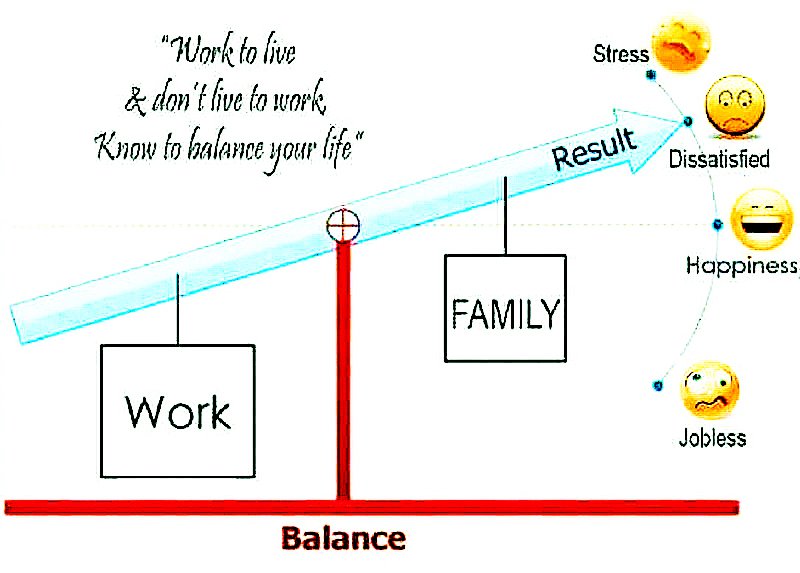#Leadership : How To Avoid The 5 Most Common Misunderstandings At #Work …From Long Email Chains to Group Projects without Clear roles, here are the Most Common Ways #Communication at Work Goes Off the Rails, & How to Fix It.
If you’ve ever had to clear up a situation at work because you were misquoted or misinterpreted, you know how easy it is for actions and words to be misconstrued. Misunderstandings are rooted in communication, and we often wind up getting derailed because we were too busy to get clarification, says Janel Anderson, owner of the communication consulting firm Working Conversations and author of Head On: How to Approach Difficult Conversations Directly.
“We want others to agree with us, and in our current culture of too much to do and not enough time to do it,” she says. “We often jump to conclusions when, in fact, we haven’t asked enough questions and engaged them effectively to find out if they agree or not.”
Here are five of the most common situations that lead to misunderstandings, and how you can get everyone back on the same page.
1. WHEN DIVIDING RESPONSIBILITIES
When people work together on a team, everyone’s role needs to be clear. Any ambiguity can lead to misunderstandings. At the beginning of a project, put responsibilities and expectations in writing, and have regular check-ins to make sure everyone is clear about their part.
“It’s important for everyone to see their peers contributing, all working toward a goal, and ensuring that everyone’s roles are defined so that you can avoid confusion, or discontent because others aren’t doing their fair share,” says Brian Kelley, vice president of public relations and employee engagement at Sage Communications, a marketing and public relations firm. “What is that fair share? Make sure you define it at the outset so there are no questions.”
Like this Article ? Share It ! You now can easily enjoy/follow/share Today our Award Winning Articles/Blogs with Now Over 2.5 Million Growing Participates Worldwide in our various Social Media formats below:
FSC LinkedIn Network: www.linkedin.com/in/fscnetwork
Facebook: http://www.facebook.com/pages/First-Sun-Consulting-LLC-Outplacement-Services/213542315355343?sk=wall
Google+: https://plus.google.com/115673713231115398101/posts?hl=en
Twitter: Follow us @ firstsunllc
Question: Want the ‘the best/current articles/blogs on the web’ on Job Search, Resume, Advancing/Changing your Career, or simply Managing People?
Answer: Simply go to our FSC Career Blog below & type(#career, #leadership, #life) in Blog Search: https://www.firstsun.com/fsc-career-blog/
What Skill Sets do You have to be ‘Sharpened’ ?
Continue of article:
2. WHEN COMMUNICATING COMPANY GOALS
Most leaders believe they communicate big-picture information, such as goals, strategies, issues, and projects. They may be communicating, but it’s often not with the entire team, says Heidi Pozzo, founder of Pozzo Consulting, a strategy consulting firm.
“There is typically a lot of discussion within the leadership team so it feels like everyone should understand,” she says. “The challenge is the group that needs to hear about it may have only heard from leaders once or twice.”
A leader needs to clearly define not only the starting point, but the pathway and critical touch points to the desired state, says Brad Deutser, CEO of the leadership consulting firm Deutser and author of Leading Clarity: A Breakthrough Strategy to Unleash People, Profit, and Performance. “Defining the pathway is fundamental to achieving the desired end state,” he says. “A purposeful leader works to carefully define the pathway, eliminating any potential diversions and ensuring clarity.”
3. WHEN COMMUNICATING VIA EMAIL
Email frequently leads to misunderstandings because it eliminates social cues, like tone of voice, eye contact, or facial expression that aid our comprehension of the message, says Anderson.
“When email misunderstandings occur, people feel threatened and get defensive,” she says. “To avoid this misunderstanding I suggest following the rule of three: If there have been three emails exchanged and you haven’t understood each other, pick up the phone and speak to them in person.”
4. WHEN DISCUSSING PROFESSIONAL GOALS
Disconnects can often happen during feedback or performance reviews, says Kelley. “It’s easy to relay information in a negative connotation when you are in effect asking for something completely different,” he says.
For example, if someone says, “I’ve worked too hard and too long for this pay,” they probably mean they feel undervalued or that their work/life balance is out of order.
“Instead of jumping to a conclusion, always assume the other party is coming from a position of positive intent,” says Kelley, adding that it’s important to take what you know about the employee and read between the lines. “Ensure you properly accept and respond to their message from this positive intent and coach them on how to better communicate their misunderstanding more effectively in the future.”
Be sure to get clear on employees’ long-term personal and professional goals, adds Ed McNamara, senior director of marketing and communications for SHI International, a software firm. “Some employees are very good at being proactive in asking for what they want; others might wait to be asked, but that doesn’t mean they want it any less,” he says.
5. WHEN YOU’RE HEARING THIRD-PERSON INFORMATION
The old saying is that too many cooks spoil the broth, and too many voices can spoil the message. “A lot of misunderstandings at work happen when information is relayed between people,” says Jessica Schaeffer, chief of staff and director of marketing and communications for the LaSalle Network, a staffing firm. “Someone says something, tells another person, and that person talks to you,” she says. “It could be business-related or company politics, but usually, it leads to a misunderstanding.”
It’s important to not jump to conclusions and get defensive, says Schaeffer. “Go back to the original person, and ask for clarification,” she says. “Eliminate the middleman and get the information firsthand. Sometimes the middleman misinterprets excitement as frustration or anger, or worse yet, doesn’t know the person well enough to pick up on important context or nonverbal cues, and relays the message incorrectly.”
WHY MISUNDERSTANDINGS ARE COMMON
The human brain is a sense-making machine and it wants to know why someone did or didn’t do something, says Anderson. “In the absence of information, we make up a motive, and we are usually wrong,” she says.
In all of these situations, the best way to mitigate is to stop and check in with yourself when you think someone has intentionally wronged you. “Ask yourself how much hard evidence you have to support your conclusion that the other person has acted maliciously,” says Anderson. “If you don’t have much—or any—evidence, get curious and ask the person some questions about why they did what they did. Assume positive intent until you have hard evidence to the contrary.”
FastCompany.com | March 1, 2018 | BY STEPHANIE VOZZA 4 MINUTE READ






 Responding to emails during off-work hours isn’t the only area in which you need to set boundaries. You need to make the critical distinction between what belongs to your employer and what belongs to you and you only. The items that follow are yours. If you don’t set boundaries around them and learn to say no to your boss, you’re giving away something with immeasurable value.
Responding to emails during off-work hours isn’t the only area in which you need to set boundaries. You need to make the critical distinction between what belongs to your employer and what belongs to you and you only. The items that follow are yours. If you don’t set boundaries around them and learn to say no to your boss, you’re giving away something with immeasurable value.
